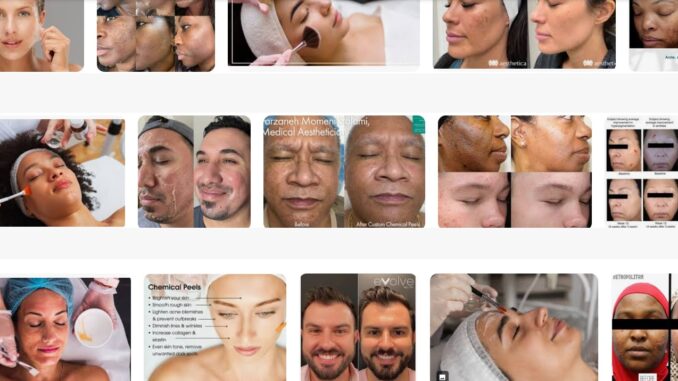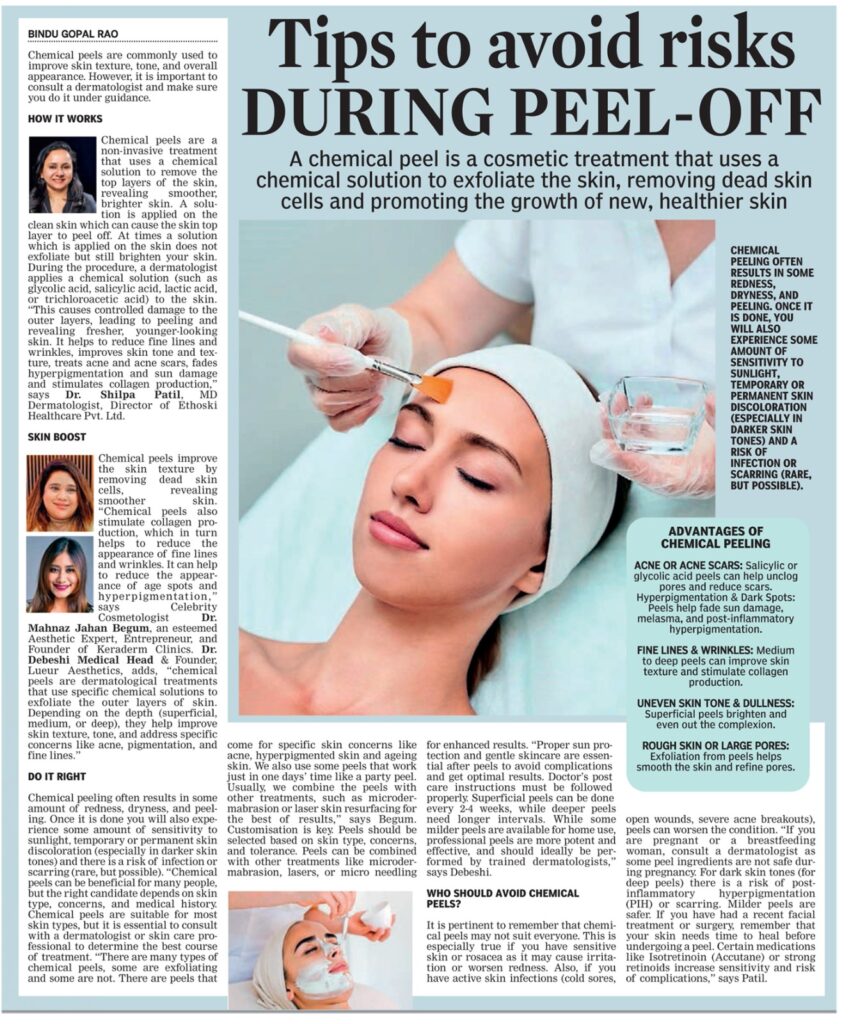
The chemical solution applied to the skin causes controlled damage to the outer layers, prompting the skin to shed and peel off. This process stimulates cell turnover and collagen production, revealing smoother, healthier skin underneath.
Benefits
- Improves skin texture and smoothness.
- Reduces acne and acne marks.
- Lightens pigmentation and sunspots.
- Minimizes fine lines and wrinkles.
- Unclogs pores and reduces blackheads/whiteheads.
- Brightens dull skin.
- Enhances absorption of skincare products.
Risks are associated with chemical peels
- Redness and irritation (temporary)
- Peeling and dryness for a few days
- Hyperpigmentation or hypopigmentation (more common in darker skin if not performed properly or now a days even salons are doing which is very risky)
- Infection (rare, but possible if aftercare is not followed)
- Scarring (very rare, seen with deep peels or improper technique)
Who can go for chemical peels?
- Suitable for individuals with acne, pigmentation, dullness, fine lines, or uneven skin tone
- People with oily or acne-prone skin especially benefit from peels like salicylic acid.
- Dry or sensitive skin can also tolerate milder peels like lactic acid or mandelic acid.
- However, pregnant or breastfeeding women, people with active infections, eczema, rosacea, or very sensitive skin should avoid or be extremely cautious.
Read the full story that first appeared in Deccan Chronicle dated March 2, 2025 here:


Leave a Reply